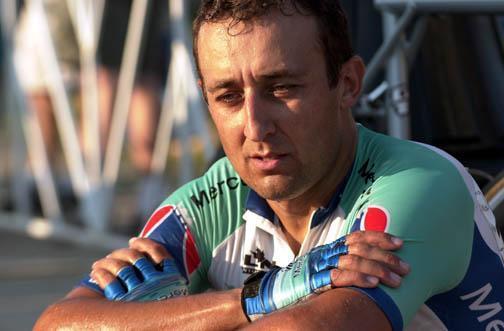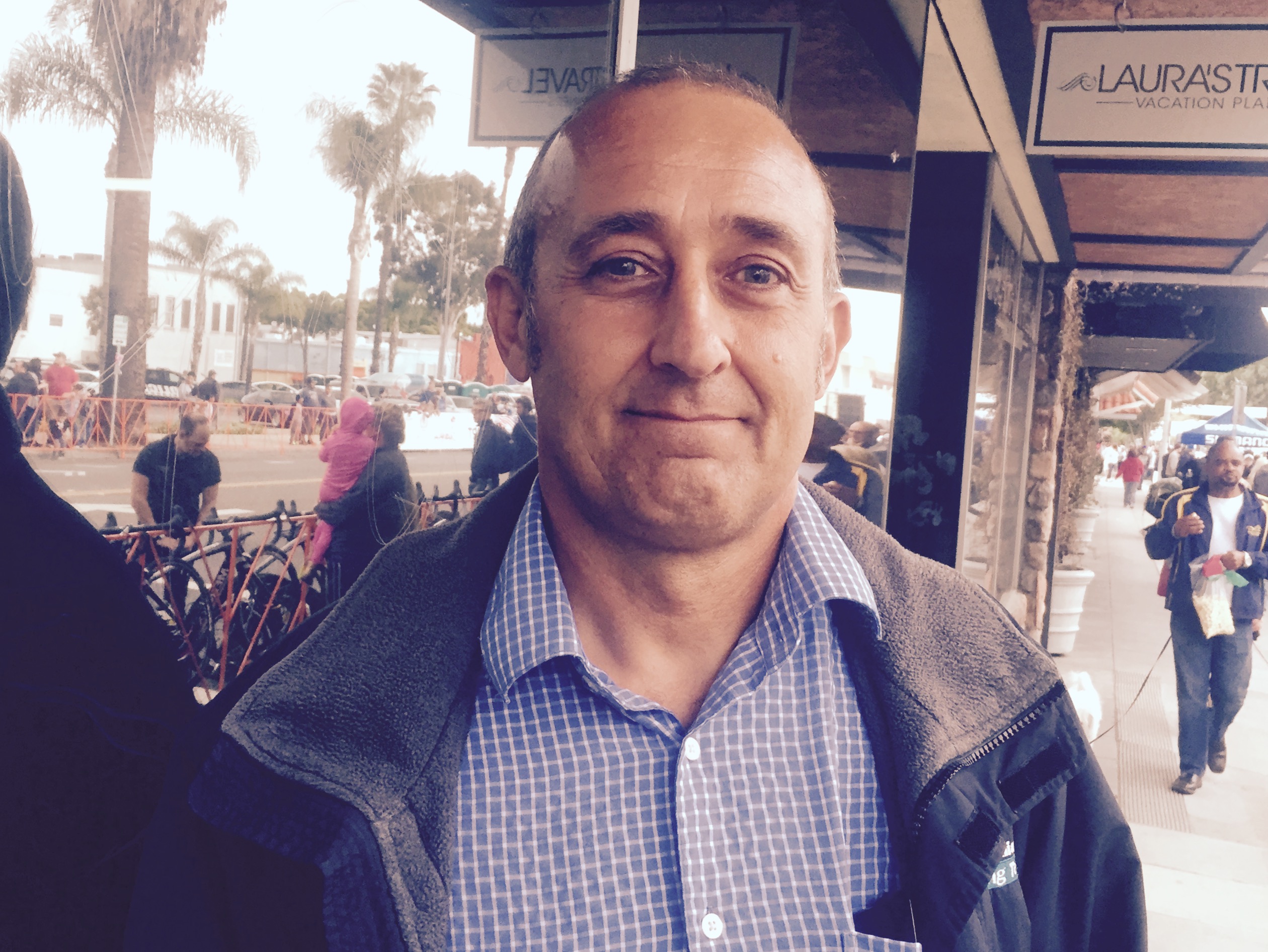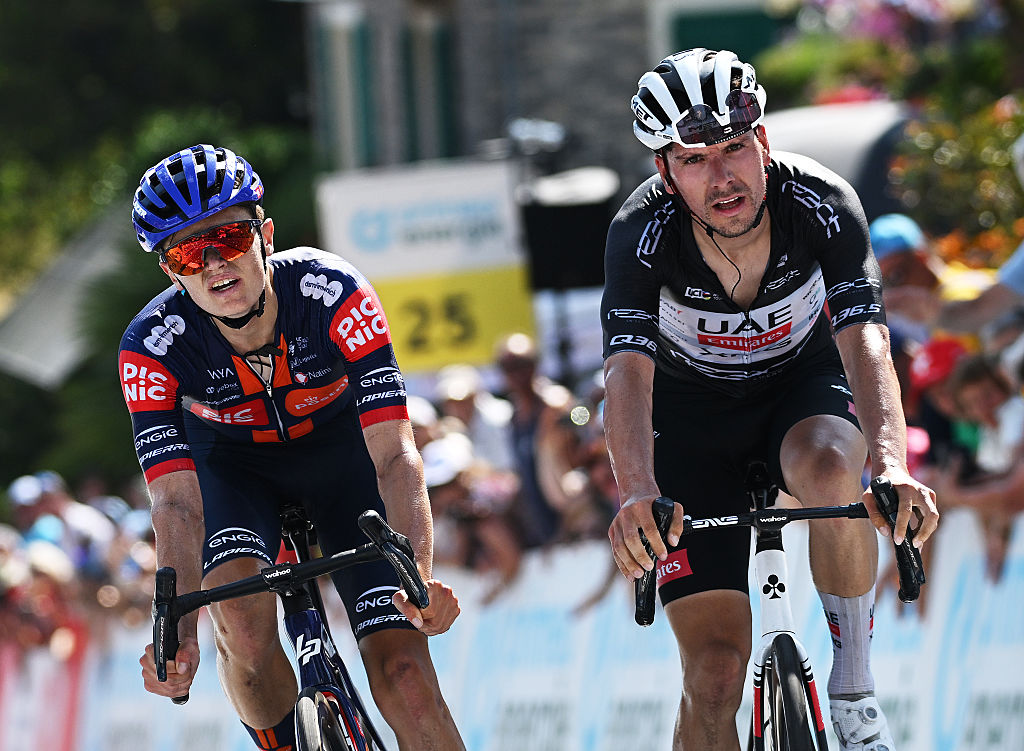USA Week: Cycling's call pulls Roy Knickman back into the fold
Former La Via Claire and 7-Eleven pro running one of the top US junior teams
The latest race content, interviews, features, reviews and expert buying guides, direct to your inbox!
You are now subscribed
Your newsletter sign-up was successful


Standing almost anonymously along the barriers just past the finish line of the Redlands Bicycle Classic criterium, Roy Knickman looks like any other spectator taking in one of America's longest-running pro races. But the tireless stream of team directors, managers, race officials and others who stop to talk with him, shake his hand or just recall old times, gives away the fact that he's no casual cycling fan.
During a career that spanned over two decades, Knickman raced professionally in the US and Europe as a member of Levi's-Raleigh, La Vie Claire, 7-Eleven, Coors Light and Mercury. He raced alongside legendary teammates Greg LeMond and Bernard Hinault, and he was part of a pioneering era of cyclists who brushed away the novelty of Americans riding in the European peloton and pushed it into the norm.
Knickman earned a bronze medal at the 1984 Olympic Games as part of the US four-man team time trial squad, competed in the Tour de France twice and later worked as a national team coach at USA Cycling. In Europe he won stages at Criterium du Dauphine and the Tour de Suisse. Just don't tell Knickman he was one of the groundbreakers in an important growth spurt for US cycling, because he's not buying it.
“No, I really see Jaques Boyer, he was the pioneer,” Knickman told Cyclingnews. “Mike Neel, pioneer – Davis Phinney, Ron Kiefel, Andy Hampsten. Even though I only came a year or two later, those guys are the legends and really deserve the notoriety. Yes, I was in there and kind of joined up with it a few years later and had a few good moments, but for me, it's them. Those are the guys.”
Knickman actually started his European professional career on La Via Claire with Hinault and LeMond in 1986, the season after Hinault's final Tour de France victory and the year of the infamous LeMond-Hinault Tour meltdown.
“So my first European experience as a neo-pro was with Bernard Hinault,” he said. “It was amazing. Hinault was a fierce competitor, but I learned things as a leader. He was a giving leader. I loved LeMond, and I'm friends with LeMond, but they were two different creatures. I learned different things from both them, but they were both positive.”
Despite eschewing any credit for being a major actor in the American invasion of top-level European cycling with 7-Eleven and others, Knickman was among those chosen recently by Davis Phinney for the 7-Eleven sprinter's Cyclingnews dream team.
The latest race content, interviews, features, reviews and expert buying guides, direct to your inbox!
“Roy was a tempo monster,” Phinney wrote. “He could sit on the front all day, pulling steadily, to control the field or contain a breakaway. Unbeatable as a junior, Roy was true ‘wunderkind’.”
Knickman admitted that he and Phinney developed a special relationship over the years that went beyond simple teammates who took third together in the 1984 Olympic team time trial.
“I'll let you in on a little secret,” Knickman said. “He was like my big brother. We were team trialists, all of that. We were adversaries before I joined 7-Eleven, and yet we had a connection even then before we were racing together. We ended up living together for a few years with Andy [Hampsten]. The three of us basically shared Andy's house [in France].”
Knickman initially retired from racing at the end of 1993, turning to private coaching and then serving as coach of the US junior national team in 1994 and the US elite national and Olympic road team for two years through 1997. But the call of cycling grew loud enough in 1998 that he returned to racing again with the Mercury team, where he was also the assistant manager until 2000. Following Mercury he worked with the Autotrader.com and Prime Alliance domestic teams.
Knickman wasn't at Redlands just to shake hands and reminisce with old friends, however. He currently runs the Lux-Stradling junior team, a US outfit that features some of the top young riders in the country. He was there to make more connections, help other teams and personally thank the people who have supported his team.
“I went away from [cycling] for a number of years just to start up another career,” he said. “So my paying job is firefighter, which is good because it affords me a lot of time. So I got out of it, and I was asked to get back into it about five years ago. I was coaching a few people, and then I was asked to manage a team and it kind of rolled into this. Then my son got into it, and so now he's riding junior Paris-Roubaix tomorrow.”
Bo Knickman is one of the riders for the Lux-Stradling team and the US junior national team. Knickman described his son, who is 6 feet 3 inches tall and weighs 170 pounds, as a “big monster stomper. He's a big diesel engine guy.”
“So the passion has come back,” Knickman siad. “I wouldn't enjoy running a pro team, but I like being able to pass on what I've gleaned, what I've picked up, what I've been taught to these kids so they can have opportunities.
“What kids get to be in Belgium, Holland and France when they're 16, 17 and 18 years old?” he said “I got to do it, but not a lot of people get to do it. So to help them enough to be able to get those chances with the national team – and even last year we decided there weren't enough opportunities so we rotated seven guys in and we did three UCI, national team type stage races. We spent a month based out of Belgium traveling to Germany, France, and in Belgium for them to have those opportunities.”
Despite having on his team arguably one of the top junior racers in the world in Brandon McNulty, Knickman said the ultimate goal of the junior program is to develop good characters and responsible adults. Cycling is merely a means to that end.
“It's not so much about developing pros,” he said. “It's more about just giving them a great experience in life. I was talking with an old teammate from the '80s today. We were catching up after not talking for years, and I said that what I'm realizing is that with all the kids I work with – yeah we have this kid who's going to be a superstar, and maybe one kid in the next three years will eventually make money as a bike racer – but it's not about that. It's about giving them the opportunities.”
In fact, Knickman said he has a love-hate relationship with the idea of starting kids down a road that could eventually end with a paying gig in cycling.
“Because eventually it has to stop and you have to get on with your life anyway,” he said of potential racing careers. “Some people do it because they don't want to get on with life. So to have a machine that develops guys who aren't getting on with life, I don't necessarily totally want to be doing anyway. But to develop good characteristics and give them confidence and give them amazing experiences, that's what makes it worthwhile.
“They're still going to learn teamwork, they're still going to be looking for the result, they're still all going to want to try and make money racing bikes, but very few people will. It's kind of the opposite of what you think. The byproduct is that you will develop a few pros, but by and large you're trying to give kids confidence, you're trying to give kids opportunities to see the world and think differently and do all that. It's important to me. I realize the value because I had that, and I had a lot of people support me doing that when I was 16, when I was 17, when I was 18.”
So Knickman is back in cycling trying to return a little bit of the opportunity and mentorship that he benefited from as a youth. He said he gets great satisfaction from it.
“You have purpose,” he said. “What are you going to do, sit around and watch TV all day?”
Growing up in Missoula, Montana, Pat competed in his first bike race in 1985 at Flathead Lake. He studied English and journalism at the University of Oregon and has covered North American cycling extensively since 2009, as well as racing and teams in Europe and South America. Pat currently lives in the US outside of Portland, Oregon, with his imaginary dog Rusty.
